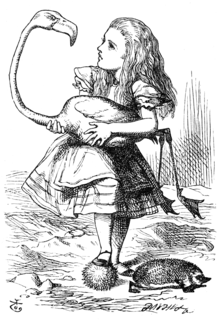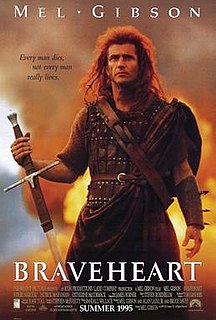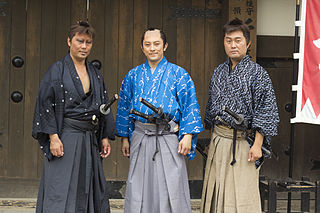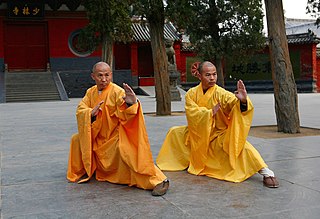Nonfiction or non-fiction is content that purports in good faith to represent truth and accuracy regarding information, events, or people. Nonfiction content may be presented either objectively or subjectively, and may sometimes take the form of a story. Nonfiction is one of the fundamental divisions of narrative writing— in contrast to fiction, which offers information, events, or characters expected to be partly or largely imaginary, or else leaves open if and how the work refers to reality.

An anachronism is a chronological inconsistency in some arrangement, especially a juxtaposition of persons, events, objects, or customs from different periods. The most common type of anachronism is an object misplaced in time, but it may be a verbal expression, a technology, a philosophical idea, a musical style, a material, a plant or animal, a custom, or anything else associated with a particular period that is placed outside its proper temporal domain.
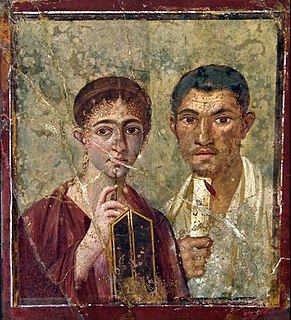
In the study of history as an academic discipline, a primary source is an artifact, document, diary, manuscript, autobiography, recording, or any other source of information that was created at the time under study. It serves as an original source of information about the topic. Similar definitions can be used in library science, and other areas of scholarship, although different fields have somewhat different definitions. In journalism, a primary source can be a person with direct knowledge of a situation, or a document written by such a person.

A literary genre is a category of literary composition. Genres may be determined by literary technique, tone, content, or even length. The distinctions between genres and categories are flexible and loosely defined, often with subgroups.
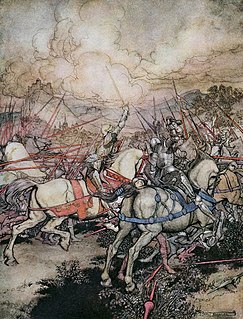
Historical fantasy is a sub-genre of fantasy that encompasses the Middle Ages, as well as sometimes other eras, and simply represents fictitious versions of historic events. This sub-genre is common among role-playing games and high fantasy literature. It can include various elements of medieval European culture and society, including a monarchical government, feudal social structure, medieval warfare, and mythical entities common in European folklore. Works of this genre may have plots set in biblical times or classical antiquity. They often have plots based very loosely on mythology or legends of Greek-Roman history, or the surrounding cultures of the same era.

A ghost story may be any piece of fiction, or drama, that includes a ghost, or simply takes as a premise the possibility of ghosts or characters' belief in them. The "ghost" may appear of its own accord or be summoned by magic. Linked to the ghost is the idea of "hauntings", where a supernatural entity is tied to a place, object or person. Ghost stories are commonly examples of ghostlore.
Historians of England in the Middle Ages helped to lay the groundwork for modern historical historiography, providing vital accounts of the early history of England, Wales and Normandy, its cultures, and revelations about the historians themselves.
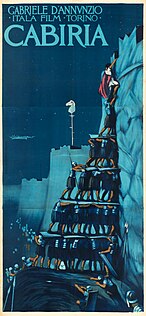
Epic films are a style of filmmaking with large scale, sweeping scope, and spectacle. The usage of the term has shifted over time, sometimes designating a film genre and at other times simply synonymous with big-budget filmmaking. Like epics in the classical literary sense it is often focused on a heroic character. An epic's ambitious nature helps to set it apart from other types of film such as the period piece or adventure film.
An epilogue or epilog is a piece of writing at the end of a work of literature, usually used to bring closure to the work. It is presented from the perspective of within the story. When the author steps in and speaks directly to the reader, that is more properly considered an afterword. The opposite is a prologue—a piece of writing at the beginning of a work of literature or drama, usually used to open the story and capture interest. Some genres, for example television programs and video games, call the epilog an "outro" patterned on the use of "intro" for "introduction".
The non-fiction novel is a literary genre which, broadly speaking, depicts real historical figures and actual events woven together with fictitious conversations and uses the storytelling techniques of fiction. The non-fiction novel is an otherwise loosely defined and flexible genre. The genre is sometimes referred to using the slang term "faction", a portmanteau of the words fact and fiction.

Literature, most generically, is any body of written works. More restrictively, literature refers to writing considered to be an art form or any single writing deemed to have artistic or intellectual value, often due to deploying language in ways that differ from ordinary usage.

An actor is a person who portrays a character in a performance. The actor performs "in the flesh" in the traditional medium of the theatre or in modern media such as film, radio, and television. The analogous Greek term is ὑποκριτής (hupokritḗs), literally "one who answers". The actor's interpretation of their role—the art of acting—pertains to the role played, whether based on a real person or fictional character. Interpretation occurs even when the actor is "playing themselves", as in some forms of experimental performance art.
A juried competition is a competition in which participants' work is judged by a person or panel of persons convened specifically to judge the participants' efforts, either by the competition's stated rubric or by a subjective set of criteria dependent upon the nature of the competition or the judges themselves. For example, in a juried competition where participants compete against each other for a monetary prize, for inclusion in a show or publication, or for representation by a gallery, the work presented is judged by one or more persons, often experts, for such prize, inclusion, or representation.
Historical period drama is a film genre in which stories are based on historical events and famous persons. Some historical dramas attempt to accurately portray a historical event or biography, to the degree that the available historical research will allow. Other historical dramas are fictionalised tales that are based on an actual person and their deeds.

The following outline is provided as an overview of and topical guide to fantasy:


